
Why Does Hot Water Freeze Faster Than Cold Water? A Deep Dive for Science Students
Introduction
The age-old question of whether hot water freezes faster than cold has puzzled scientists, students, and casual observers alike. At first glance, it seems counterintuitive—why would a hotter liquid freeze before a colder one? This blog post aims to unravel the mystery behind this phenomenon, known as the Mpemba effect, and provide science students with a comprehensive understanding of the factors that influence freezing rates. With a blend of historical context, experimental observations, and scientific theories, we will explore why this peculiar effect has captured the imagination of many, from Aristotle to modern-day physicists.
Let’s rewind a bit. The Mpemba effect is named after Erasto Mpemba, a Tanzanian teenager who noticed in the 1960s that a hot mixture would freeze faster than a cold one while making ice cream. Now, if that doesn’t make you raise an eyebrow, what will? Aristotle himself laid the groundwork for this idea centuries ago when he suggested that warm water freezes more swiftly than cold.
But wait, there’s more! Many experiments have come and gone, each trying to validate or debunk this curious claim. Some suggest it’s due to evaporation, where hot water loses mass, while others argue that convection currents play a crucial role. Cold water, with its higher concentration of dissolved gases, might also freeze slower.
So, how do we make sense of all this? This blog post will guide you through the intricate web of theories, experiments, and ongoing debates surrounding the Mpemba effect. Our goal is to spark curiosity and provide a deeper understanding of the fascinating world of thermodynamics.
With a sprinkle of humor and a dash of curiosity, let’s embark on this scientific adventure together!
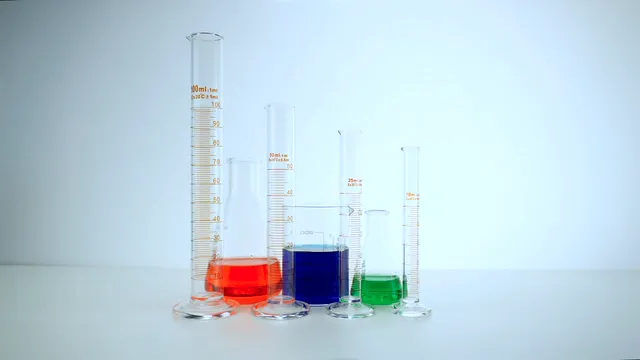
Summary of Key Points
In this article, we will investigate the Mpemba effect, a phenomenon where hot water can freeze faster than cold under certain conditions. Key points we will cover include:
- Historical Observations: The origins of the Mpemba effect, dating back to Aristotle and rediscovered by Erasto Mpemba in the 1960s.
- Scientific Explanations: Various theories, including evaporation, convection currents, and the role of dissolved gases.
- Experimental Findings: A review of key experiments that have attempted to validate or refute the Mpemba effect.
- Current Understanding: Ongoing debates and the complexities surrounding this intriguing topic.
Stay tuned as we disentangle the science behind this phenomenon, explore its implications, and spark curiosity about the fascinating world of thermodynamics.

The Mpemba Effect: An Overview
Definition and Discovery
The Mpemba effect is a fascinating phenomenon where hot water freezes faster than cold water under specific conditions. This counterintuitive observation has sparked curiosity and debate among scientists for decades. It was first formally noted in the 1960s by Erasto Mpemba, a Tanzanian student, during an ice cream-making class. While striving to make the perfect ice cream, Mpemba noticed that his hot mixture froze more quickly than his classmates’ cooler mixtures. This unexpected result led him to question the conventional wisdom about temperature and freezing.
Mpemba’s inquiry caught the attention of Dr. Denis Osborne, a physicist who collaborated with him to explore this observation further. Their work culminated in a publication that reignited interest in the Mpemba effect, which had its roots in ancient scientific discussions.
Historical Context
Historically, the notion that warm water might freeze faster than cold has been around for centuries. Aristotle, the renowned Greek philosopher, noted that warm water freezes more quickly when placed in the sun. This idea was revisited over the years by various scientists, including Francis Bacon and René Descartes, each contributing their own observations and theories. Bacon suggested that slightly tepid water might freeze more easily than cold water, while Descartes linked the phenomenon to his vortex theory.
However, it wasn’t until the 20th century that the Mpemba effect garnered serious scientific attention. Mpemba’s observations during the ice cream experiment prompted modern researchers to investigate the conditions that lead to this puzzling outcome. Despite the historical context, replicating the effect in controlled experiments proved challenging, with many variables influencing the freezing process. The journey from Aristotle’s musings to Mpemba’s discovery illustrates how curiosity drives scientific inquiry, highlighting the complexities of thermal dynamics and the need for precise experimentation.
Speaking of experiments, if you’re inspired to conduct your own science projects, consider grabbing a Science Experiment Supplies. They can help you explore the wonders of thermodynamics and more!
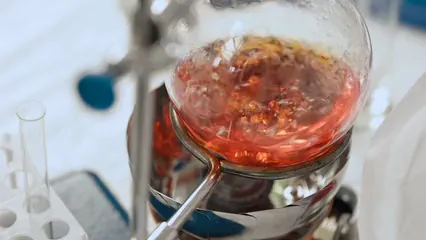
Mechanisms Behind the Mpemba Effect
Theories and Hypotheses
Evaporation: One leading theory suggests that hot water evaporates more rapidly than cold water. This loss of mass could reduce the volume that needs to freeze, allowing the remaining water to reach freezing temperatures more quickly. If you’re curious about conducting evaporation experiments, a Laboratory Thermometer can be a great tool to measure temperatures accurately.
Dissolved Gases: Another hypothesis centers on the amount of dissolved gases. Cold water tends to contain more dissolved gases than hot water. This difference may alter the properties of the water, potentially affecting its freezing point and rate.
Convection Currents: Temperature differences create convection currents, which can influence cooling rates significantly. Hot water might develop stronger convection currents, promoting a more uniform cooling process compared to cold water, which can cool unevenly.
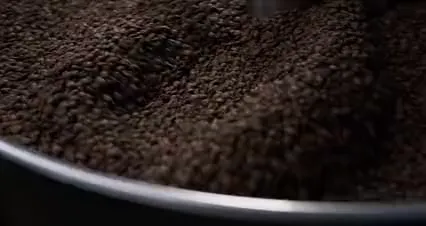
Experimental Insights
Researchers have conducted numerous experiments to validate the Mpemba effect. These experiments often vary in design, focusing on different variables such as water purity, container shape, and environmental conditions. For instance, a study by John Bechhoefer and Avinash Kumar examined how initial conditions impacted cooling rates using a controlled setup. Their findings indicated that under specific configurations, hotter water could indeed freeze faster than colder water, lending credence to the Mpemba effect.
As investigations continue, the Mpemba effect remains a captivating topic, illustrating the complexities of thermal dynamics and challenging our understanding of freezing behavior. If you’re interested in keeping track of your experimental results, a Science Lab Notebook could be your best friend!
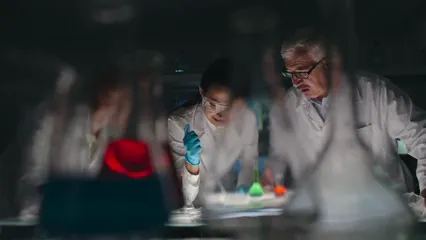
Experimental Findings
Key Experiments
Mpemba and Osborne (1969)
In the 1960s, Erasto Mpemba, a Tanzanian student, sparked a scientific curiosity that still captivates minds today. During an ice cream-making class, he observed that hot mixtures froze faster than their colder counterparts. This led him to partner with physicist Dr. Denis Osborne to explore the phenomenon systematically. Their pivotal 1969 paper, published in Physics Education, documented their findings, suggesting that under specific conditions, hot water could indeed freeze quicker than cold water. They proposed a series of experiments to investigate the influence of variables like evaporation and convection, thus igniting a debate that has since permeated scientific circles.
2016 Study by Burridge and Linden
Fast forward to 2016, and researchers Henry Burridge and Paul Linden took a fresh look at the Mpemba effect. They highlighted the critical role of measurement techniques in their experiments. Their findings indicated that discrepancies in temperature readings could mislead results, complicating interpretations of the Mpemba effect. The duo’s work emphasized how temperature can vary in non-equilibrium conditions, suggesting that the cooling rates of hot and cold water are sensitive to their initial states. Their research urged scientists to reconsider previous assumptions about the freezing behavior of water, demonstrating that context matters in thermal dynamics.
Bechhoefer and Kumar’s Research
John Bechhoefer and Avinash Kumar further examined the Mpemba effect by manipulating experimental conditions. Their research focused on how different configurations could affect cooling rates. They utilized a controlled environment with glass beads to simulate various conditions. Their results revealed that under the right circumstances, hotter water could freeze faster than colder water, echoing Mpemba’s original observations. Yet, they also noted that the effect is not universally applicable, as slight variations in setup could lead to different outcomes. Their work contributes to a growing understanding of how nuanced the Mpemba effect can be, urging researchers to refine their experimental approaches.
Variables Impacting Results
The dynamics of freezing water hinge on various factors, and understanding these can clarify why results differ. One major variable is the shape of the container. Different geometries can influence heat transfer rates, affecting how quickly water cools. For instance, a wide, shallow dish allows for more surface area, enhancing heat loss through evaporation. If you’re looking for the perfect containers for your experiments, consider checking out this Glass Beaker Set.
Initial temperatures also play a crucial role. If hot water is near boiling, it may lose mass through evaporation, potentially leading to a quicker freeze. Environmental conditions, such as air temperature and humidity, can further complicate the scenario. A freezer’s efficiency can vary based on how many other items are inside or even the presence of frost layers, which might insulate cold water and slow its freezing process.
Moreover, the amount of dissolved gases in the water impacts its freezing point. Cold water can hold more dissolved gases, which may affect its thermal properties. When comparing hot and cold water, these factors create a complex interaction that can significantly influence freezing rates. Therefore, replicating the Mpemba effect in experiments requires meticulous attention to these variables, showcasing the intricate nature of thermodynamic principles.
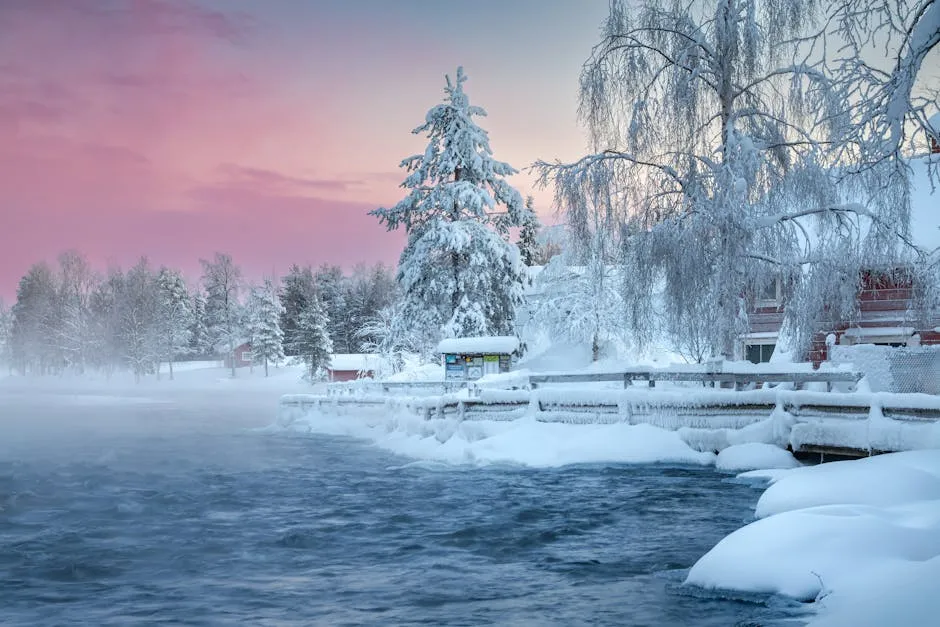
Future Research Directions
The Mpemba effect continues to boggle the minds of scientists. Future studies might focus on several key areas to clarify this elusive phenomenon. Researchers could explore the precise conditions under which hot water freezes faster than cold. Variables such as water purity, container shape, and environmental factors like humidity and air pressure can impact results significantly.
Additionally, scientists may investigate the role of thermal conductivity in different materials. Does the type of container influence the freezing rate? Understanding how materials interact with heat could reveal more about heat transfer dynamics. If you’re looking for some unique materials to experiment with, consider a pair of Heat Resistant Gloves for safe handling during your experiments!
Another area of inquiry lies in the behavior of supercooled water. This occurs when water cools below its freezing point without turning to ice. Researchers could examine how initial temperature affects the likelihood of supercooling and its impact on freezing rates.
The presence of dissolved gases also warrants further investigation. Cold water typically contains more dissolved gases than hot water. Scientists could study how this discrepancy affects the physical properties of water and its freezing behavior.
Lastly, exploring the Mpemba effect in various liquids beyond water, such as alcohol or saline solutions, could broaden our understanding of the phenomenon. Each of these directions holds the potential to unlock deeper insights into the complexities of thermal dynamics, ultimately enriching scientific knowledge.
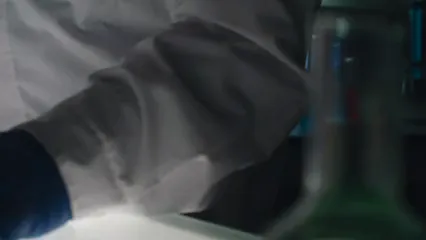
Conclusion
In conclusion, the Mpemba effect serves as a captivating example of the complexities underlying thermal dynamics. While the phenomenon where hot water freezes faster than cold water remains a topic of debate, it highlights the importance of experimental inquiry and the scientific method. Encouraging curiosity in science students, this topic not only challenges conventional wisdom but also invites further exploration into the fundamental principles of physics.
As we continue to investigate the nuances of the Mpemba effect, we may uncover deeper insights into the behaviors of liquids and heat transfer, ultimately enriching our understanding of the world around us. The historical context of this phenomenon, from Aristotle’s musings to Erasto Mpemba’s ice cream experiment, illustrates how curiosity can propel scientific inquiry.
Despite its long history, the Mpemba effect remains shrouded in mystery. Ongoing research is crucial, as it may reveal new principles governing thermal dynamics. Each experiment contributes to our collective understanding, helping to demystify why hot water can sometimes freeze faster than cold.
This topic serves as an excellent educational tool for science students. It encourages them to think critically and question assumptions. By considering the various factors at play, students learn about the intricacies of scientific experimentation. If you’re interested in enhancing your science education, check out a variety of Educational Science Kits available on Amazon!
As we continue to probe the Mpemba effect, let’s remember that science thrives on curiosity and skepticism. The journey to understanding this phenomenon reminds us that even the simplest questions can lead to profound discoveries. In a world filled with complexities, the Mpemba effect stands as a testament to the power of inquiry and the endless pursuit of knowledge.
FAQs
What is the Mpemba effect?
The Mpemba effect is an intriguing phenomenon where hot water freezes faster than cold water under certain conditions. Named after Erasto Mpemba, who observed it in the 1960s while making ice cream, this effect challenges our intuitive understanding of freezing. While it seems odd that warmer water would reach a solid state sooner, many scientists have documented instances where this occurs. The exact mechanisms behind the Mpemba effect remain a topic of ongoing research and debate, showcasing the complexities of thermodynamics.
Why does hot water sometimes freeze faster?
Several factors contribute to the Mpemba effect, making hot water freeze faster than cold in certain scenarios. One key factor is evaporation; as hot water loses mass through evaporation, it can cool down more quickly. Additionally, hot water can create stronger convection currents, leading to a more uniform cooling process. On the flip side, cold water often contains more dissolved gases, which can affect its freezing point. The interplay between these variables creates conditions where hot water may indeed freeze faster.
Can I replicate the Mpemba effect at home?
Absolutely! You can conduct a simple experiment to see the Mpemba effect in action. Here’s what you’ll need: 1. Gather three identical containers and label them as “Hot,” “Warm,” and “Cold.” 2. Heat one cup of water to 100°F for the “Hot” container, 70°F for the “Warm,” and use 40°F water for the “Cold.” 3. Place all three containers in the freezer at the same time. 4. Check and record the temperature every ten minutes until the water in each container freezes. Keep an eye on the results! You might discover that the hot water freezes before the cold, showcasing the Mpemba effect right in your kitchen.
Are there practical applications for the Mpemba effect?
The Mpemba effect may have several practical applications across various fields. In food science, for instance, faster freezing could enhance the preservation of food products, maintaining their quality and texture. Additionally, in cryogenics, where rapid cooling is essential, understanding the Mpemba effect could lead to more efficient methods of achieving low temperatures. Moreover, insights from this phenomenon can contribute to advancements in cooling technologies, such as refrigeration and air conditioning, allowing for optimized energy use. As research continues, the implications of the Mpemba effect could extend even further, influencing a range of industries.
Please let us know what you think about our content by leaving a comment down below!
Thank you for reading till here 🙂
Curious about why hot water freezes faster than cold? You can read more about this phenomenon in our article Why does hot water freeze faster than cold water.
All images from Pexels




